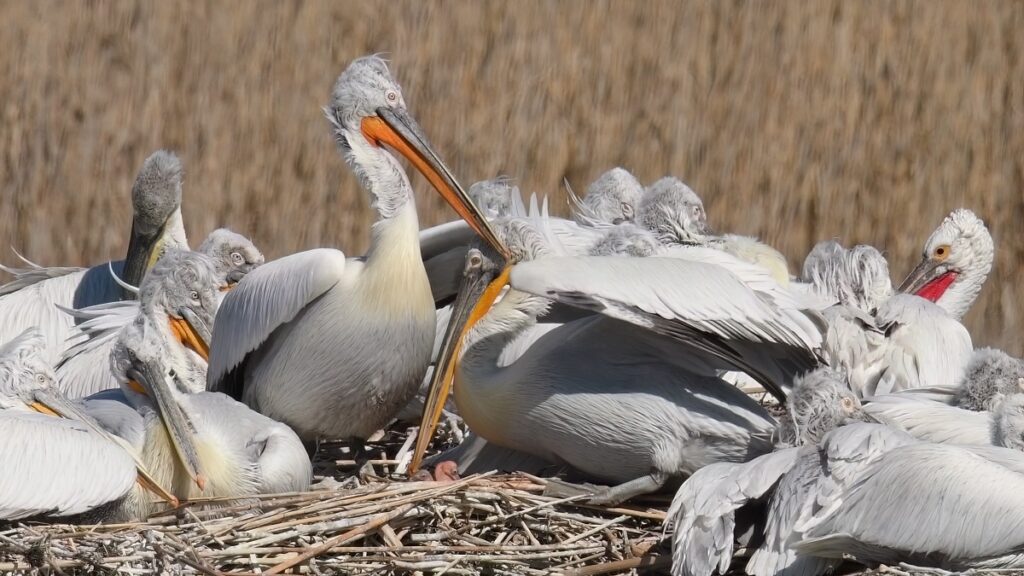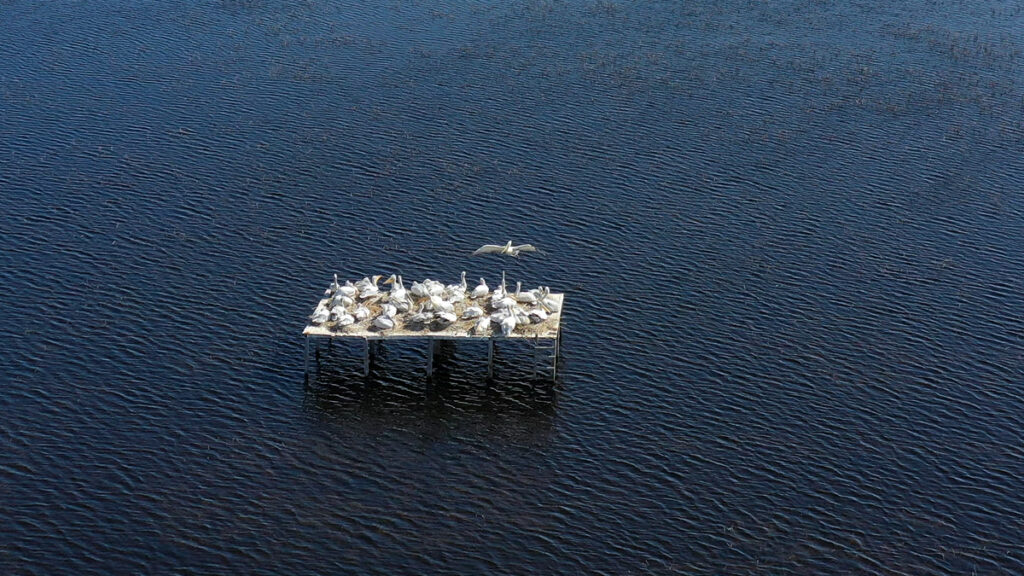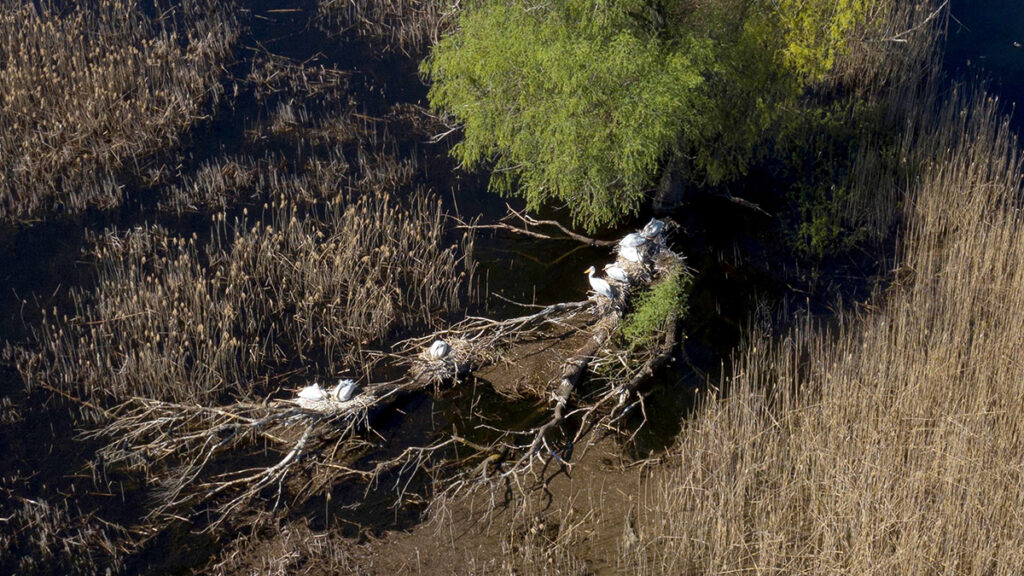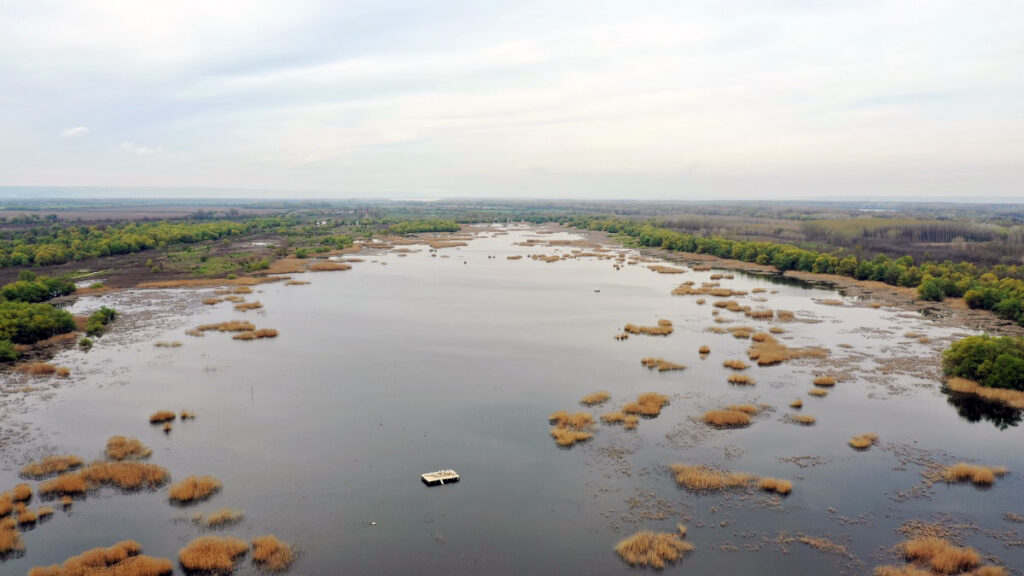At the end of March, the first Dalmatian pelicans hatched in the Persina Nature Park and in the Kalimok-Brushlen Protected Area. This was discovered during the regular monitoring of the species, carried out by experts and volunteers of the Bulgarian Society for the Protection of Birds (BSPB), as well as by experts from the Directorate of the Persina Nature Park in the town of Belene.

At this time, adult birds carefully care for and warm their young. More pelicans are expected to hatch in the coming days, as not all pairs from the breeding colonies nested at the same time. This is quite normal for this iconic wetland species.
The last year’s breeding season was quite unsuccessful due to the extremely low level of the Danube River, which resulted in the drying up of the marshes on Persin Island. But this year we observe already 35 pairs of Dalmatian pelicans nesting on the two wooden platforms in the Peschina Marsh located in the Persina Nature Park.

Moreover, during the current season, the experts and volunteers of the BSPB witnessed a record number of breeding pairs in the Kalimok-Brushlen Protected Area. In addition to the 64 pairs that occupied the two wooden platforms, another 15 pairs formed nests on fallen trees, which is very interesting and a good sign for the species. This brings the total number of nesting pelicans in the protected area to 79 pairs, compared to just 3 pairs two years ago and 30 the year before. This is an outstanding conservation success and a step forward in the conservation of this majestic species.

The experts and volunteers of the BSPB will continue with the regular monitoring of the species, and we all hope that the pelicans in the Persina Nature Park and in the Kalimok-Brushlen Protected Area will have a successful breeding season!
When monitoring with a drone, it is very important that the birds are not disturbed. Therefore, this type of research is only carried out by experts in the species.

The conservation activities on the Dalmatian Pelican are carried out in the framework of the international initiative “Pelican Way of LIFE” funded by the LIFE Programme of the European Union and Arcadia Foundation, and with the assistance in Bulgaria of the Whitley Fund for Nature.